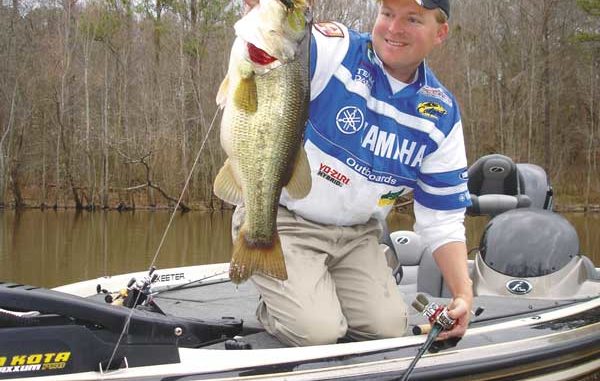
Boat gas $120, truck fuel $60, hotel $85 per night, dinner $15, food on the lake $10, tackle $100. As you are well aware, fishing can be expensive, especially for tournament anglers.
I’m always looking for ways to save money — on and off the road. What I’ve found is small savings really add up.
While money is a consideration, I don’t hold back on anything important to success — if the fish are biting best 60 miles up the lake — that’s where I’m going. It’s pointless to stay close to the dock if no fish are there.
A penny saved is a penny earned, but a penny well spent can make you much more. I never hold back with regard to my tackle or equipment; what I save on are everyday expenses.
During tournament practices when you want to fish a long distance from a take-off area, tow your boat to a launch ramp near where you intend to practice to save time and money.
Tow before dawn and be fishing at first light and save an hour boat ride. A 60-mile tow might take 4 gallons of fuel whereas a 60-mile boat ride might use at least 10 gallons. Compute that as a two-way trip and you save 40 bucks in boat fuel and two hours of boat-running time.
However, if the lake is unfamiliar, you’ll need to run make the run at least once before competition begins, as you might not be able to get back (I learned that lesson the hard way).
Seek out the cheapest fuel stops, which often is sold at bigger truck stops. I have a diesel truck and have noticed the cheapest diesel and gasoline is at large-volume stations, such as Flying J. Gasoline shopping can save as much as 30 cents per gallon. Multiply that by a 46-gallon Skeeter gas tank, and I just saved $13.80.
And during tournament practice, drive the boat at a reasonable speed. Yamaha HPDI engines achieve 30 percent better fuel economy than standard two-stroke engines at normal speeds. The best practice speed for me is about 4000 to 4500 rpm (45 to 55 mph). The HPDI gets about 6 to 8 miles per gallon at this speed verses 3 to 4 mpg wide open.
Driving at this lower speed also enables anglers to notice the world around them and pick up valuable tips — baitfish, schooling fish, bank cover and other must-see clues.
The diesel truck is also a big saver. Along with better towing capacity, a diesel engine gets nearly twice the fuel economy as the same model truck equipped with a gasoline engine.
If I’m traveling out of North Carolina, I try to hold off fueling up until I get to a lower-tax state — such as South Carolina — which is often 20 cents per gallon cheaper.
If you have an away-from-home tournament or vacation and need a hotel, never pay the first rate they give you. Ask for AAA, government rate, senior rate, trucker rate or any other discount you can claim; you might save $20 a night.
If you’re near an interstate, the best deals are often found in free hotel discount magazines located in restaurant lobbies or rest areas. If you’re going to stay for a week, ask for a weekly rate — it’s often the cheapest.
For food and snacks for the lake, never buy at convenience stores. Always stock up at a grocery store or large chain store.
Individual soft drinks slowly steal money from you. Always buy bulk water and other drinks.
A 24-pack of water for the lake is $4.99. But bought individually at a gas station, you get five bottles for this price.
If you really want to be tight, fill the bottles up at night with tap water. For dinner try to split a meal and order an extra side or salad as restaurants normally give you way too much anyway.
My last tip is only for those who are very responsible with money — get a rewards credit card; the advantages are tremendous.
A rewards credit card offers several perks: users don’t have to carry much cash as most businesses will accept them; your money makes interest in your bank account for a month while the card company is just adding up the money you spent; you don’t pay any interest to the credit company if you pay your bill in full each month.
You also earn rewards of as much as 6 percent on everything you purchase.
I have a GM card that pays 5 percent on purchases. The last truck I bought resulted in a huge discount from that 5 percent. Every $100 you spend you get $5 toward a truck.
If you’re not in the market for a truck, a cash-back card is also good but pays a little less. Never use a card if you can’t pay the balance in full each month or they’ll eat your money faster than $3 gas in an offshore racing boat. An Internet search for “rewards cards” can help locate the best card for your situation.
All these tips can save thousands of dollars a year while on the road and at home fishing.
A penny saved is a crankbait earned.
Dustin Wilks is a 30-year-old professional bass angler and Raleigh native now living in Rocky Mount. He has qualified for the Bassmaster Classic four times and operates Fish Like a Pro Fishing Lessons (252-883-6749, www.fishlikeapro.com ). His sponsors include Skeeter Boats, Yamaha, Daiwa, Keelshield and Culprit.



Be the first to comment